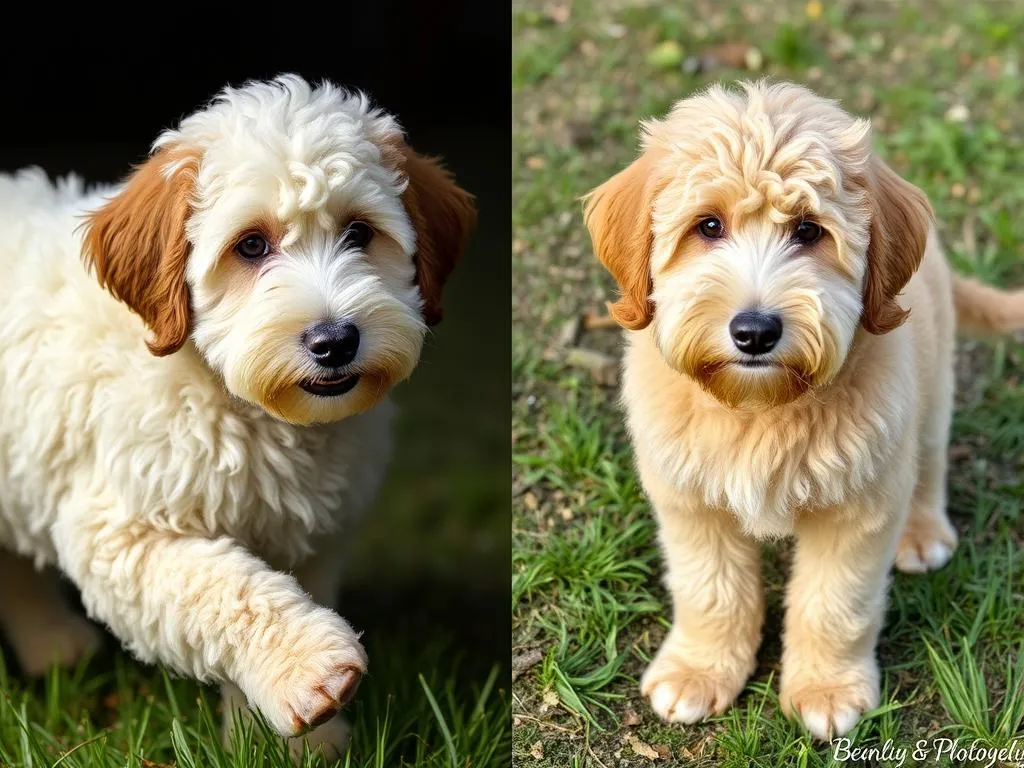
The popularity of Doodle breeds has surged in recent years, captivating dog lovers with their unique traits and charming appearances. Among the most sought-after Doodles are the Sheepadoodle and the Goldendoodle. As a blend of two distinct breeds, each offers a unique set of characteristics that appeal to different types of dog owners. Understanding the differences between these breeds is crucial for anyone considering adding a furry friend to their family.
Overview of the Doodle Breeds
What are Doodle Breeds?
Doodle breeds are hybrid dogs that result from crossing a Poodle with another breed. They are generally characterized by their curly, low-shedding coats, which make them more suitable for allergy sufferers. The intent behind breeding Doodles often includes creating a dog with the intelligence and trainability of a Poodle while incorporating the desirable traits of the other parent breed.
Popularity of Doodles
The Doodle phenomenon has taken the dog world by storm. According to the American Kennel Club (AKC), Doodle breeds have consistently ranked among the most popular in the United States. Their friendly demeanor, hypoallergenic coats, and adaptability make them a top choice for families and individuals alike. The trend toward Doodles is driven by their versatility as family pets and their ability to fit into various lifestyles.
Sheepadoodle: An In-Depth Look
Breed History and Origins
The Sheepadoodle is a cross between the Old English Sheepdog and a Poodle. This hybrid was developed to produce a friendly, intelligent dog that also has a hypoallergenic coat. The breed became popular in the early 2000s as Poodle mixes gained traction for their desirable traits.
Physical Characteristics
Sheepadoodles are typically medium to large-sized dogs, weighing between 45 to 80 pounds. Their coats can vary from wavy to curly and are often a mix of black, white, and gray. One of their most striking features is their fluffy appearance, which makes them incredibly adorable.
Temperament and Behavior
Sheepadoodles are known for their friendly and gentle temperament. They are highly social and tend to get along well with families, children, and other pets. Their intelligence makes them easy to train, but they do require consistent socialization and mental stimulation. Common health issues include hip dysplasia and certain eye conditions.
Care and Maintenance
In terms of grooming, Sheepadoodles require regular brushing to prevent matting. Depending on their coat type, they may need professional grooming every 6 to 8 weeks. Exercise is essential for this breed; daily walks and playtime will help keep them physically and mentally fit. A balanced diet tailored to their age and size will ensure they stay healthy.
Goldendoodle: An In-Depth Look
Breed History and Origins
The Goldendoodle is a cross between the Golden Retriever and a Poodle. This breed was developed in the late 1990s, primarily to create a friendly, intelligent dog ideal for families and service work. Goldendoodles have quickly gained popularity due to their charming personalities and versatility.
Physical Characteristics
Goldendoodles come in various sizes, depending on whether the Poodle parent is standard, miniature, or toy. Typically, they weigh between 15 to 90 pounds. Their coats can range from wavy to curly, and they often come in shades of gold, cream, and apricot.
Temperament and Behavior
Goldendoodles are known for their affectionate and friendly nature. They are very social and thrive on human interaction, making them excellent family pets. They are generally good with children and other animals. Common health issues include hip dysplasia and certain skin conditions.
Care and Maintenance
Goldendoodles also require regular grooming to manage their coats. Depending on the type of coat, they may need grooming every 4 to 8 weeks. They have high energy levels and need daily exercise, such as walks and playtime. A well-balanced diet is vital for their overall health and well-being.
Key Differences Between Sheepadoodle and Goldendoodle
Size and Weight Comparison
The size and weight of the Sheepadoodle and Goldendoodle can vary significantly. Typically, Sheepadoodles weigh between 45 to 80 pounds, while Goldendoodles can range from 15 to 90 pounds, depending on the size of the Poodle parent. This size difference may influence which breed is more suitable for your living situation.
Coat and Grooming Needs
Both breeds have coats that can vary between wavy and curly, but the Sheepadoodle usually has a denser coat due to the Old English Sheepdog’s influence. Sheepadoodles may require more frequent grooming to manage their thick fur, while Goldendoodles might be easier to maintain depending on their coat type.
Temperament Differences
While both breeds are friendly and sociable, Sheepadoodles tend to be more reserved initially, taking time to warm up to new people. In contrast, Goldendoodles are often more outgoing and eager to meet new friends. This difference may make Goldendoodles a better fit for more active families or social environments.
Health Considerations
Both breeds face similar health issues, including hip dysplasia and certain eye conditions. However, due to their unique genetic backgrounds, Sheepadoodles may be more prone to specific health concerns associated with the Old English Sheepdog. Lifespan expectations for both breeds are usually around 10 to 15 years, depending on their overall health.
Which Breed is Right for You?
Lifestyle Considerations
When deciding between a Sheepadoodle and a Goldendoodle, consider your lifestyle. Sheepadoodles may be better suited for families looking for a more laid-back pet, while Goldendoodles are ideal for those seeking a highly social and energetic companion. Both breeds thrive in environments where they receive ample attention and exercise.
Family Dynamics
Both breeds are compatible with families, but their suitability may vary based on family dynamics. Goldendoodles tend to be more playful and energetic, making them great for families with active children. Sheepadoodles, while also friendly, may be better suited for families looking for a more gentle and calm dog.
Allergies and Sensitivities
Both Sheepadoodles and Goldendoodles are often considered hypoallergenic due to their Poodle ancestry, making them suitable for allergy sufferers. However, individual reactions can vary, so it’s essential to spend time with the breed before making a decision.
Conclusion
In comparing the Sheepadoodle vs Goldendoodle, it’s clear that both breeds have unique characteristics that cater to different dog owners. Sheepadoodles offer a more laid-back, gentle temperament, while Goldendoodles provide a highly social and energetic companion. Ultimately, your choice should align with your lifestyle and family dynamics. Each breed has its own charm and can make a wonderful addition to the right home.
FAQs
What is the average lifespan of a Sheepadoodle and Goldendoodle?
Both breeds typically have a lifespan of around 10 to 15 years, depending on their health and care.
Are Sheepadoodles and Goldendoodles hypoallergenic?
Yes, both breeds are often considered hypoallergenic, but individual reactions can vary.
How often should I groom my Sheepadoodle or Goldendoodle?
Sheepadoodles generally require grooming every 6 to 8 weeks, while Goldendoodles may need grooming every 4 to 8 weeks, depending on their coat type.
How much exercise do Sheepadoodles and Goldendoodles need?
Both breeds require daily exercise to stay healthy and happy, including walks and playtime.
Are Sheepadoodles and Goldendoodles good with children?
Yes, both breeds are known for their friendly and gentle nature, making them suitable companions for families with children.









